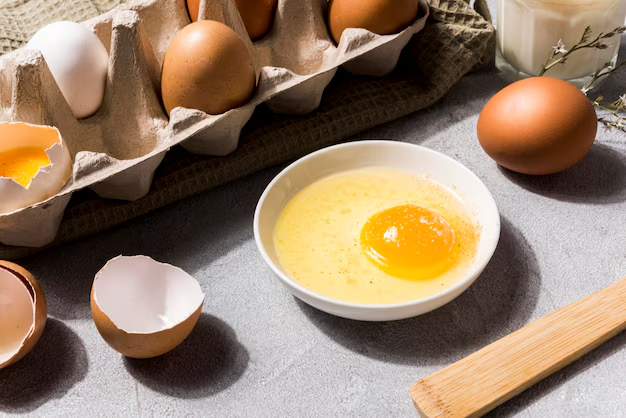The Shelf Life of Hard-Boiled Eggs: How Long Can They Really Last in Your Refrigerator?
Eggs are a versatile and nutritious food staple in many households, and hard-boiled eggs, in particular, offer a quick and convenient protein boost. However, understanding the best practices for storing hard-boiled eggs can help ensure that they remain safe to eat and delicious. Let's delve into how long hard-boiled eggs can be kept in the refrigerator and explore essential tips for storage and handling.
🥚 Understanding Hard-Boiled Eggs
Hard-boiled eggs are eggs that have been cooked in boiling water until both the whites and yolks have solidified. This cooking method makes them a popular choice for snacks, salads, and lunchboxes. However, their high protein content and moisture level also make them susceptible to spoilage if not stored correctly. Let's take a closer look at why storage matters.
🗓️ How Long Can You Keep Hard-Boiled Eggs in the Refrigerator?
Hard-boiled eggs can be stored in the refrigerator for up to one week. Beyond this period, the risk of spoilage and the growth of bacteria increases, making it essential for health-conscious consumers to adhere to these storage guidelines.
Factors Affecting Freshness and Shelf Life
- Peeling: Unpeeled eggs tend to last longer in the refrigerator. The shell acts as a natural barrier against bacteria, keeping the egg fresher.
- Storage Conditions: Keeping eggs in a cold but consistent temperature area of your fridge prolongs their shelf life. Avoid storing them in the door where temperatures fluctuate more.
- Moisture: Store eggs in a dry container. Excess moisture can promote bacterial growth.
🥶 Storing Hard-Boiled Eggs: Best Practices
Before Refrigeration
- Cooling: After boiling, cool the eggs quickly by placing them in a bowl of ice water or running cold water over them. This helps prevent the yolks from turning grayish-green and keeps the eggs fresh longer.
In the Refrigerator
- Unpeeled Eggs: Place unpeeled eggs in their carton to remind you of the storage date.
- Peeled Eggs: For peeled hard-boiled eggs, place them in a bowl and cover them with plastic wrap or place them in an airtight container.
- Labeling: Consider labeling the container with the boiling date to keep track of freshness.
In the Freezer
While it is possible to freeze hard-boiled eggs, it is not recommended as the texture often changes, especially the whites, which become rubbery.
🥗 Practical Uses for Hard-Boiled Eggs
Hard-boiled eggs are incredibly versatile. They can be:
- Sliced into salads for a protein boost.
- Mashed into egg salad or deviled eggs.
- Eaten Whole as a quick, on-the-go snack.
- Chopped into soups or stews for added texture and flavor.
🔍 Identifying Spoilage: When to Toss
It's crucial to recognize signs of spoilage to avoid consuming eggs that could make you sick. Look out for:
- Unpleasant Smell: Bad eggs will emit a sulfur-like odor.
- Discoloration: Yolk or whites showing signs of unusual colors, such as pink or green, should be discarded.
- Texture Changes: Slimy or chalky texture indicates spoilage.
📝 Summary: Key Takeaways for Storing Hard-Boiled Eggs
Here's a quick guide to remember when handling and storing hard-boiled eggs:
- 🕒 Keep for No Longer Than a Week: Ensure consumption within seven days for safety.
- 🥶 Store Properly: Unpeeled eggs in the carton, peeled eggs sealed in a container.
- 📋 Date Your Eggs: Mark storage containers with the boiling date.
- ❌ Watch for Spoilage: Smell, discoloration, and texture are critical indicators.
🍳 Afterword: Enjoying Hard-Boiled Eggs Safely
Hard-boiled eggs are a nutritious, versatile option for many meals when managed with proper care. By following these guidelines, you can safely enjoy this protein-packed food while minimizing waste and maximizing freshness. Whether you're preparing lunch, throwing together a quick breakfast, or snacking on the go, understanding hard-boiled egg storage will make enjoying this versatile food both safe and enjoyable.

